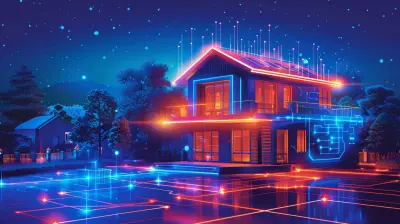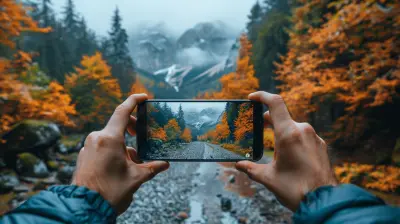Smart Cities of the Future: Embracing Sustainability and Efficiency
13 November 2025
Imagine living in a city where traffic jams are a thing of the past, your trash bins can text the garbage collectors when they’re full, and your energy bill drops thanks to smart lighting that knows when no one’s in the room. Sounds like something straight out of a sci-fi movie, right? Well, welcome to the world of smart cities—the future that’s already knocking on our door.
In this article, we’re going to unpack what smart cities really are, how they're reshaping urban lifestyles, and why sustainability and efficiency are at the heart of this movement. Grab a coffee, because this isn’t just about shiny tech—it’s about real, game-changing innovation that could redefine the way we live.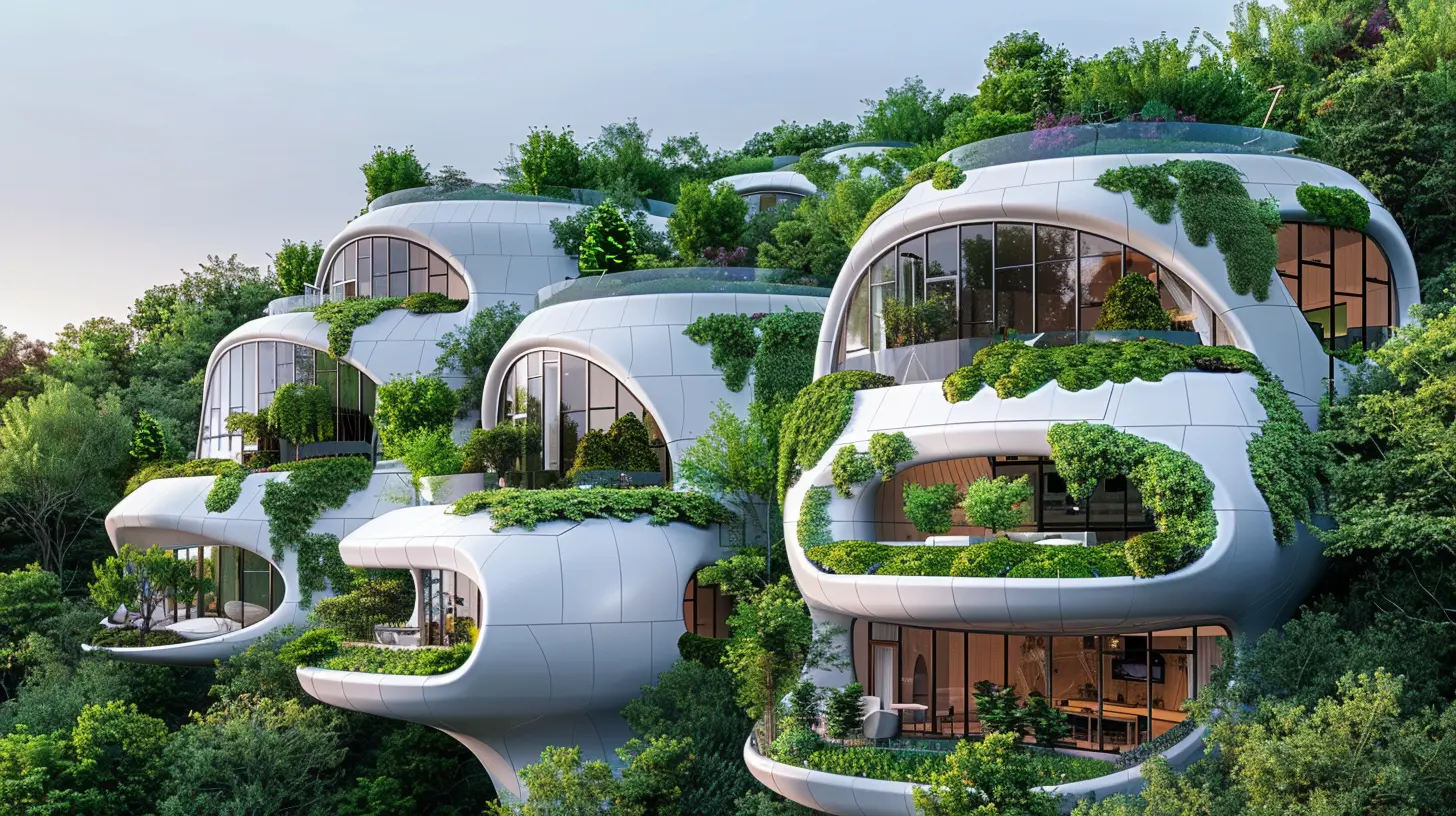
What Exactly Is a Smart City?
Let’s cut through the buzzwords. A smart city uses digital technology and data to improve city life. Think of it like giving your city a brain—it starts sensing, analyzing, and responding to real-time issues, whether it’s easing traffic, reducing pollution, or managing resources better.But hold up—it’s not just about tech. The goal is a better quality of life. We’re talking cleaner air, safer streets, more efficient public services, affordable energy, and, yes, Wi-Fi that actually works in the park.
Smart cities combine the Internet of Things (IoT), Artificial Intelligence (AI), Big Data, Cloud Computing, and machine learning to turn ordinary urban infrastructure into intelligent systems. It's basically making cities think smarter—and act smarter.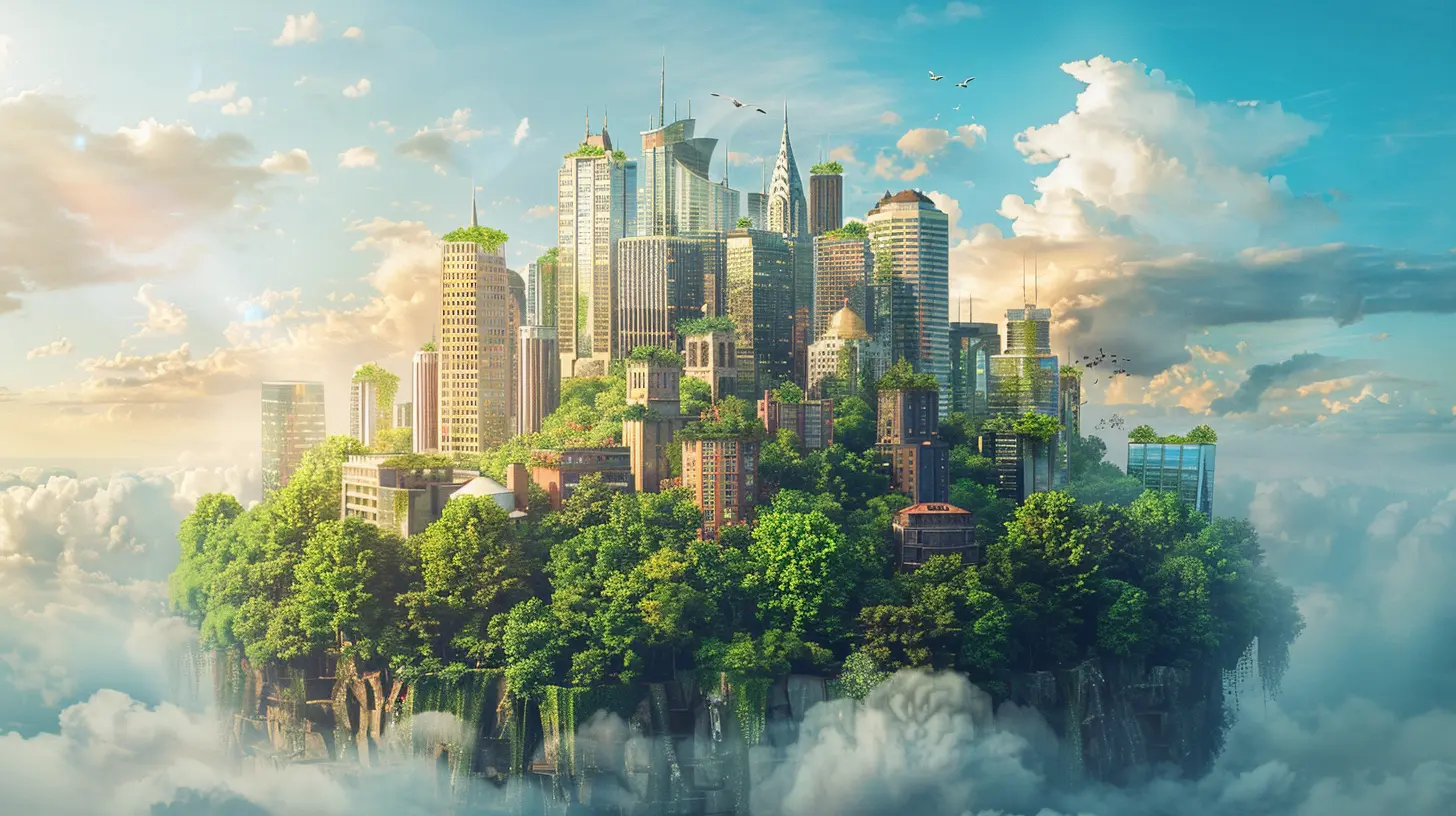
Why Do We Even Need Smart Cities?
Let’s face it, our cities are under pressure. According to the UN, over 68% of the world's population will be living in urban areas by 2050. That’s billions of people sharing streets, resources, and services. And our current infrastructure? It’s creaking under the weight.From traffic congestion and air pollution to inefficient energy usage and housing shortages—cities have a laundry list of problems. Smart cities offer solutions by introducing automation, data-driven decision-making, and user-focused services.
But here’s the kicker: the biggest driver isn't technology. It’s sustainability.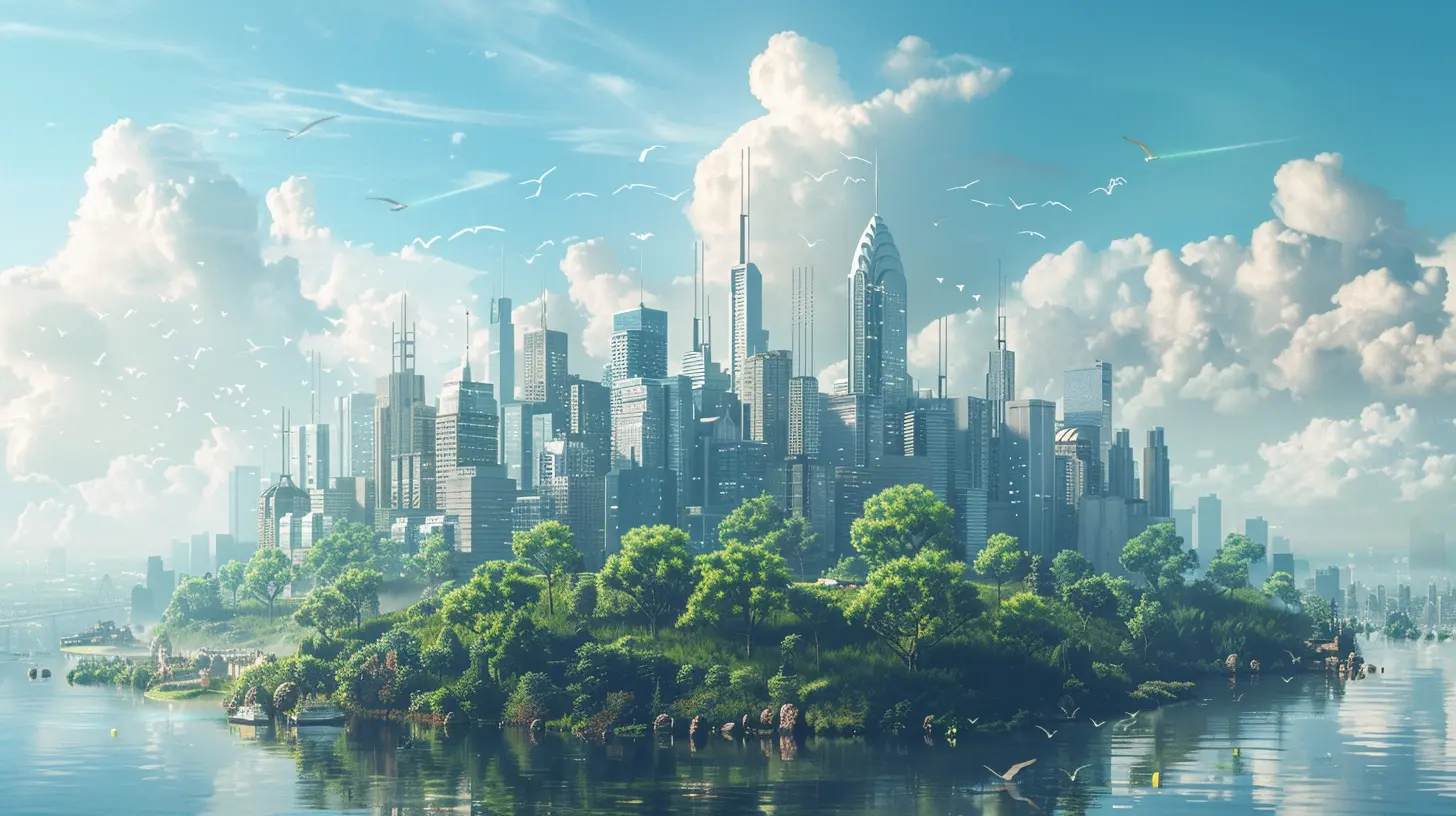
Sustainability: The Beating Heart of Smart Cities
Sustainability isn’t just about hugging trees—it’s about making choices that keep cities livable, breathable, and functional long-term. Smart cities aim to minimize waste, reduce emissions, and make better use of energy and water.Take Amsterdam, for example. The city uses smart meters, green roofs, and real-time energy data to slash carbon footprints. Barcelona? It’s using smart irrigation systems that only hydrate plants when the soil is dry—saving millions of gallons of water.
Energy Efficiency Is the MVP
Energy consumption is where smart cities shine. With smart grids, cities can better distribute power, detect outages, and even integrate renewable sources like solar and wind more effectively.Imagine your home automatically reducing heating while you’re at work or streetlights that dim when no one's around. Small changes? Sure. But on a city-wide scale, it’s a massive energy-saving machine.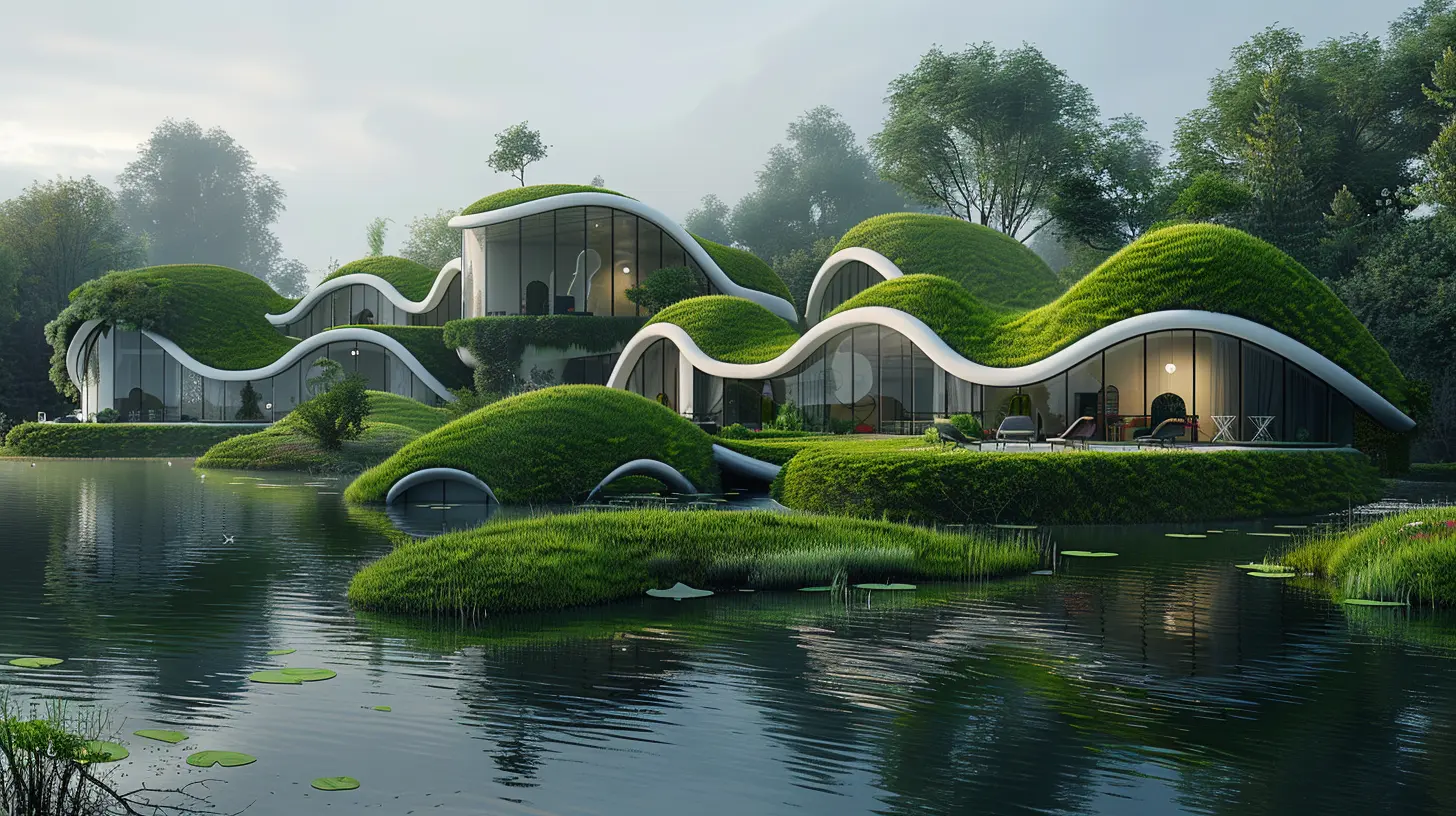
Efficiency: Doing More with Less
If sustainability is the heart, efficiency is the muscle. A smart city doesn’t just help the environment—it makes everyday life smoother, faster, and, well, smarter.Smarter Transportation
You know that feeling when you’re stuck in gridlock and wondering if the detour might’ve been faster? Smart transportation systems remove the guesswork. They use sensors, traffic cameras, and GPS data to manage traffic lights, suggest alternate routes, and even control public transport schedules.Cities like Singapore and Helsinki are setting global benchmarks with autonomous buses, app-based ride-sharing, and AI-controlled traffic systems. They’re reducing commute times and cutting down emissions in the process.
Waste Management, But Smarter
Smart bins? Yep, they exist—and they work surprisingly well. These bins notify waste collection services when they’re full, optimize pickup routes, and even separate recyclable materials automatically.The result? Cleaner streets, fewer collection trips, and a much smaller carbon footprint.
Real-Time Public Services
From smart policing using predictive analytics to digital kiosks for city services, smart cities empower governments to serve citizens faster and more efficiently.Need to report a pothole? There’s an app for that. Want to pay your taxes or renew your license? Do it online, anytime. It's like bringing City Hall into your pocket.
The Role of Data: Your City Is Watching (But in a Good Way)
Data is the lifeblood of a smart city. Millions of sensors across the city collect real-time data—from traffic flows and air quality to energy use and crowd movement.But wait—does this mean cities are constantly watching us? Kinda. But it's not about snooping. It’s about creating a feedback loop. Cities use anonymized data to make informed decisions that benefit everyone.
Still, this raises big questions about privacy. How much data is too much? Who owns it? How is it secured? These are the debates that will shape the ethical future of smart cities.
Smart Buildings: Mini Smart Cities Within Cities
Buildings themselves are getting smarter too. With energy-efficient designs, automatic HVAC systems, and integrated IoT devices, they're using less energy, producing less waste, and providing more comfort.Think of them as mini ecosystems—interconnected, responsive, and self-optimizing. Plus, they're great at slashing electricity bills. Win-win.
Connectivity: 5G Is the Game-Changer
Let’s talk 5G. This isn’t just faster YouTube streaming. It’s the glue that holds smart cities together. With ultra-fast, ultra-reliable connections, 5G enables real-time communication between millions of devices—from drones to smart cars.Without 5G, most of the cool smart city stuff? Not possible. Period.
Challenges: It’s Not All Sunshine and Solar Panels
Sure, smart cities sound like urban utopias, but the road there is bumpy. Here’s what’s holding things back:1. High Costs
Smart infrastructure isn’t cheap. While long-term gains are undeniable, the upfront investment can scare off even the most ambitious projects.2. Data Privacy & Security
Let’s be real—any system that collects massive data opens the door to hacking, surveillance, or misuse. Cities need airtight cyber strategies and transparent data policies.3. Digital Divide
What if only rich neighborhoods get the smart upgrades? That’s a real concern. Smart cities need inclusive planning to avoid deepening existing inequalities.4. Bureaucracy
Governments move slow. Innovation moves fast. Bridging that gap is a constant uphill battle.The People Factor: A City Is Only as Smart as Its Citizens
Here’s the thing—smart cities aren’t just made of sensors and servers. They’re powered by people. A city can have all the tech in the world, but if residents aren’t involved, it won't work.That’s why successful smart cities engage citizens in decision-making. Open data platforms, community apps, public consultations—all of these empower users to shape how their city evolves.
It’s not a top-down transformation. It has to be a conversation.
What the Future Holds: A Glimpse Ahead
So, where are we headed with all this?We’re talking about cities that adapt like a living organism. Think buildings that absorb carbon dioxide and produce energy, facial recognition used responsibly for entry to public transport, and AI managing urban farming on rooftops.
Imagine a world where your city knows when you're on your way home and adjusts your thermostat accordingly. Or where emergency services are dispatched by AI before you even call for help.
It sounds far-fetched, but many of these innovations are already being tested in places like Songdo, South Korea, Masdar City in the UAE, and parts of Toronto.
Final Thoughts: Are Smart Cities the Future or Just a Fad?
Let’s be honest—smart cities aren’t a silver bullet. They won’t fix every urban problem overnight. But they offer a roadmap—a blueprint for making our cities cleaner, more efficient, and more livable.And as long as we keep people, not just tech, at the center of this transformation, smart cities could very well be the biggest urban revolution since the Industrial Age.
The future is not just coming. It's being coded, block by block, byte by byte.
So, are we ready to build cities that think, learn, and grow with us?
Let’s make it happen.
all images in this post were generated using AI tools
Category:
Future TechAuthor:

Reese McQuillan
Discussion
rate this article
1 comments
Elin Anderson
Balancing technology and nature is essential.
November 14, 2025 at 3:19 AM

Reese McQuillan
Absolutely! Striking that balance is key to creating smart cities that thrive while respecting our natural environment.
